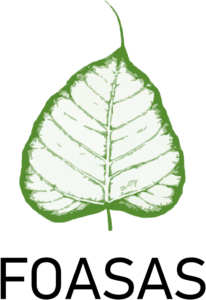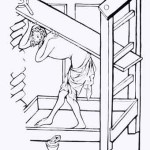The Initiative For Fair Open Access Publishing In South Asian Studies ~ The 2020 Manifesto
 The 2020 Manifesto for Fair Open Access Publishing in South Asian Studies
The 2020 Manifesto for Fair Open Access Publishing in South Asian Studies
Profiteering and restricted access have led to a crisis in academic publishing. The Fair Open Access movement is best promoted by mobilizing individual disciplines. With this manifesto, we, an open group of scholars of classical and modern South Asian Studies, declare our support for Fair Open Access publishing.
§1 As is well known, the impact of publications is very often contingent on factors independent of the quality of the research or the competence of the authors. This includes that the research is published in a renowned journal (or other publication medium), by a renowned editor, or – and this has become a major problem – by a prestigious publishing house.
§2 Most of the prestigious publication media are nowadays controlled by a small number of profiteering international publishers. These companies often sell their products at unjustifiably high prices. Much of the editorial work, on the other hand, is outsourced to researchers (or their co-workers, assistants, employees, secretaries etc.). Because they depend on the prestige capitalized on by the publishers, they generally do this without payment. This situation has led to a real crisis in academic publishing.
§3 The Open Access (OA) movement is a reaction to this development: the advance of digitization has made it easy to make the results of research freely available on the internet. OA publishing offers free access to research, regardless of an individual’s financial means or affiliation with a subscribing institution. In the OA model, the individual reader does not pay (except, of course, in the case of printed works). Instead, the publication costs are borne by universities, libraries, scholarly societies, professional associations or other scholarly institutions. While in the wake of this development a number of institutions have founded in-house publishing projects, some commercial publishers have started to offer OA as well.
§4 In order to compensate for the revenue losses resulting from the free availability of OA publications, however, some profiteering publishers have begun to calculate special fees – imposed on the authors or their institutions. Most often, these fees are unjustifiably high and overcompensate for the production costs. As a growing number of academic institutions nowadays demand that the publications of their employees be OA, they are willing to pay these fees. They even regularly schedule a special budget to finance the publishers.
§5 Ultimately, however, it is the tax payers who have to pay, often several times: funding for research and researchers, library budgets for subscription fees, acquisition of overpriced books, processing costs charged by the publishers for OA publications etc. The only reason this system functions is that researchers and their institutions are dependent on the prestige that profiteering publishers have capitalized on for commercial benefit.
Go to (incl. List of Publishers & Journals): https://foasas.org
Naeim Giladi ~ World Organization Of Jews From Islamic Countries
11-07-94 Original Air Date – Naeim Giladi (Hebrew: נעים גלעדי) (born 1929, Iraq, as Naeim Khalaschi) is an Anti-Zionist, and author of an autobiographical article and historical analysis entitled The Jews of Iraq. The article later formed the basis for his originally self-published book Ben Gurion’s Scandals: How the Haganah and the Mossad Eliminated Jews.
Giladi was born in 1929 to an Iraqi Jewish family and later lived in Israel and the United States.[Giladi describes his family as, “a large and important” family named “Haroon” who had settled in Iraq after the Babylonian exile. According to Giladi his family had owned, 50,000 acres (200 km²) devoted to rice, dates and Arab horses. They were later involved in gold purchase and purification, and were therefore given the name, ‘Khalaschi’, meaning ‘Makers of Pure’ by the Turks who occupied Iraq at the time. He states that he joined the underground Zionist movement at age 14 without his parent’s knowledge and was involved in underground activities. He was arrested and jailed by the Iraqi government at the age of 17 in 1947. During his two years in the prison of Abu Ghraib, he was expecting to be sentenced to death for smuggling Iraqi Jews out of the country to Iran, where they were then taken to Israel. He managed to escape from prison and travel to Israel, arriving in May 1950.
While living in Israel, his views of Zionism changed. He writes that, he “was disillusioned personally, disillusioned at the institutionalized racism, disillusioned at what I was beginning to learn about Zionism’s cruelties. The principal interest Israel had in Jews from Islamic countries was as a supply of cheap labor, especially for the farm work that was beneath the urbanized Eastern European Jews. Ben Gurion needed the “Oriental” Jews to farm the thousands of acres of land left by Palestinians who were driven out by Israeli forces in 1948″.
I organized a demonstration in Ashkelon against Ben Gurion’s racist policies and 10,000 people turned out.”
After serving in the Israeli Army between 1967-1970, Giladi was active in the Israeli Black Panthers movement.
- Page 4 of 4
- previous page
- 1
- 2
- 3
- 4


